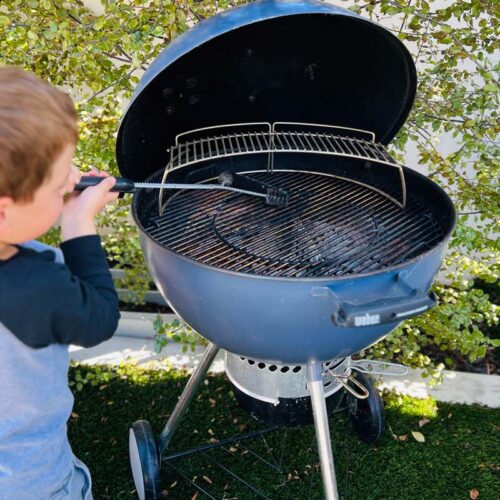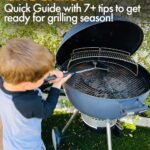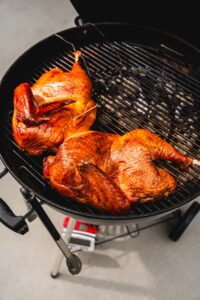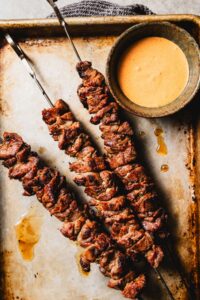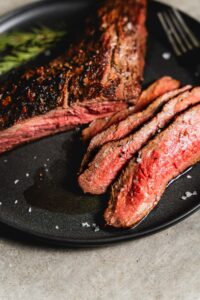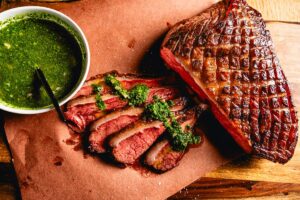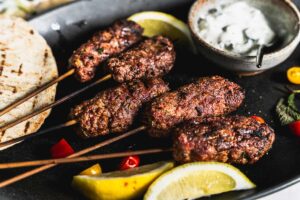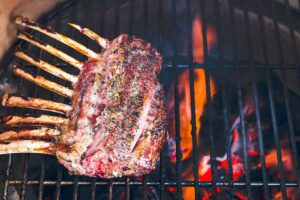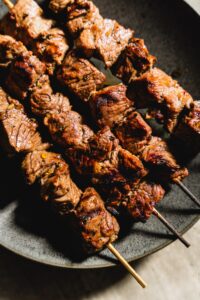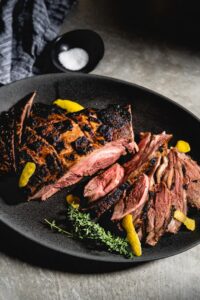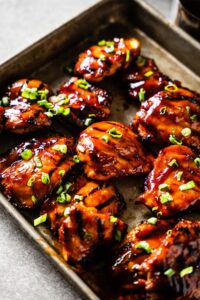It’s time to emerge from hibernation and reclaim your throne as the master of the outdoor kitchen. With some spring cleaning and a few simple maintenance tasks, you’ll have your grill and smoker fired up and ready to create more mouthwatering masterpieces in no time. So, dust off your trusty tongs, sharpen your knives, and get ready to embrace the joys of cooking on the grill once again.
1. Deep Clean & Inspect Your Grill and Smoker
- Inspect for any damage or rust that might impact performance. Order replacement parts as needed.
- Remove old ash and particles. A shop vac is a great tool for the job.
- Burn off the residue on the grates and on the inside of your grill. Light your grill and let it burn HOT.
- Clean the grates with a grill brush.
- Oil the grates with vegetable or canola oil. This helps keep them from rusting and from sticking.
- Cool it down and wipe the outside of the grill. Use a cleaner like Simple Green if it is extra dirty.
2. Check Your Fuel
Make sure your propane tank is full, and inspect the valves for any leaks. Tip: Take your tank in and swap it for a new one instead of getting it refilled if it is damaged. Check the health of your charcoal and smoking wood, and stock up on new fuel if needed.
3. Test Your Thermometers
A quality thermometer is one of the most important tools for cooking, but it’s only as good as it is accurate. This is the perfect time to test your probe thermometers to make sure they are calibrated. Simply fill a glass with ice and water, place the end of the probe in the water and it should register right around 32° F. If it’s off, then see the manual for how to calibrate it.
4. Clean Out Your Outdoor Drawers
Empty your outdoor kitchen drawers or any other storage areas where you keep your grilling tools and accessories. Get rid of anything you no longer need and organize the rest.
5. Check Your Tools
Inspect your grilling tools or smoker accessories. Replace anything that’s worn out or that could use an upgrade. Buying high-quality tools makes a big difference and they will last a long time.
6. Inspect and Stock the Pantry Basics
Stock your pantry with basic ingredients like kosher salt, pepper, spices, oils, and marinade and dry rub ingredients. Check expiration dates and toss out any old or expired items. Old spices aren’t worth keeping around, as they lose their potency rather quickly. You can save the jars they come in to store your own spice rubs.
7. Get Your Knives Sharpened
A new edge on your knives will make a huge difference in your prep work and ensure precise cuts of the hard work you put in. If you don’t sharpen your own knives, find someone reputable locally who can do it for you.
8. Do a Test Run
Before firing up the grill or smoker for an important gathering, conduct a trial run. This allows you to familiarize yourself with the equipment again and identify any potential issues that need addressing. A simple, straightforward cook will help you regain your outdoor cooking rhythm after the offseason.
Ready to start grilling?
With your grill and smoker in top shape and your pantry stocked with essentials, you’re ready to start grilling. Also, be sure to check out these 10 mistakes to avoid making with your grill, and try these seriously delicious and fun grilling recipes to enjoy the season:

